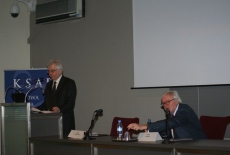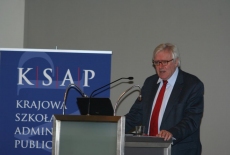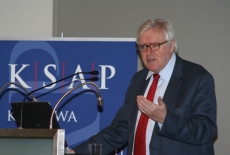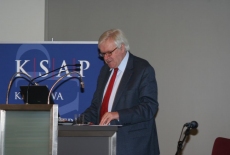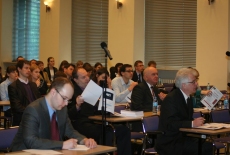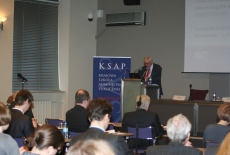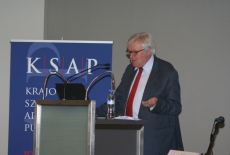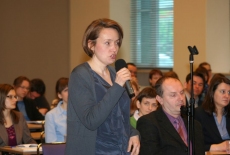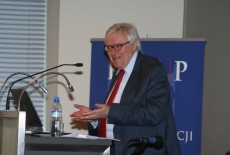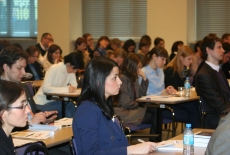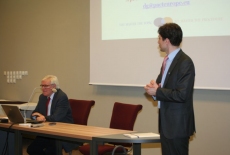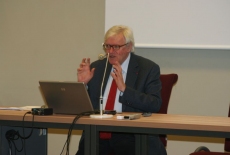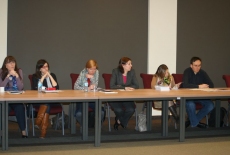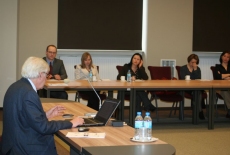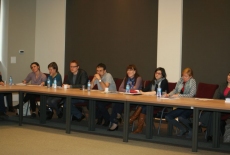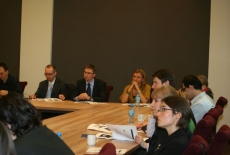The Lisbon Treaty: a new EU architecture, new EU procedures and new balance of power
W dniu 4 kwietnia 2012 r. Krajowa Szkoła Administracji Publicznej gościła Pana Daniela Guéguen’a, eksperta od lobbingu w Unii Europejskiej i znawcę kompleksowych procesów decyzyjnych i procedur unijnych.
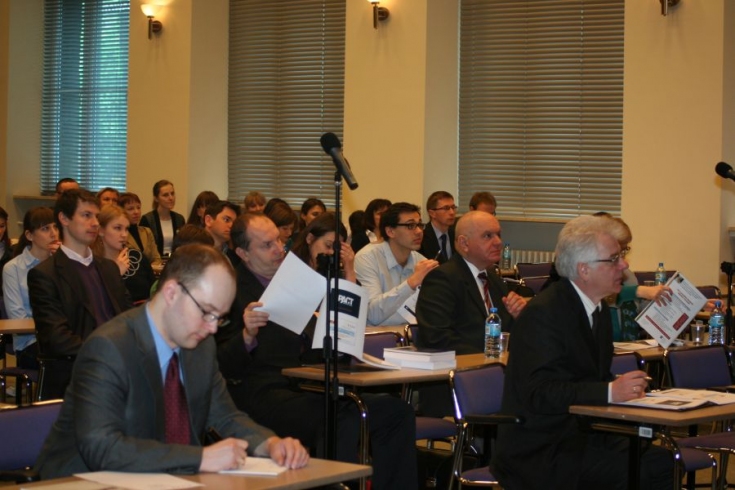
Gość podzielił się swoją konkretną i praktyczną wiedzą o nowym, odmiennym od dotychczasowego sposobie funkcjonowania polityk europejskich, współdziałania aktorów w UE i nowych możliwości wywierania wpływu na europejskie procesy decyzyjne. W ciągu tego dnia odbyły się dwa spotkania poświęcone tematyce „The Lisbon Treaty: a new EU architecture, new EU procedures and new balance of power”.
Pierwsze spotkanie trwało od godz. 9.00 do godz. 12.00. W czasie tego spotkania Daniel Guéguen przedstawił prezentację o nowym, post-lizbońskim, kształcie instytucjonalnym UE (szczególna uwaga została poświęcona procedurom i lobbingowi).
Drugie spotkanie, trwające od godz. 13.00 do godz. 15.00, miało charakter warsztatowy, którego celem było umożliwienie pogłębionej i interaktywnej dyskusji, poświęconej głównie komitologii unijnej.
Program spotkań:
First meeting, 9-12h, 4th of April, KSAP
Main subject: procedures and lobbying. Below a list of topics covered:
1. Classical decision-making process in the pre-Lisbon phase (drafting, adoption, implementation).
2. Who comes off as winner of the Lisbon Treaty? (European Parliament, Commission, Member States?). Procedure of the “orange card” (empowerment of European Parliament and national parliaments).
3. Shift from community method to inter-governmental approach.
4. Broader usage of qualified majority voting at the expense of unanimity.
5. Increasing role of European bureaucracy ŕ the Commission’s desk officer has become the real master of each EU legislative file.
6. Post-Lisbon changes I: proposal phase ŕ the 3 institutions are intervening even before the drafting phase (contrary to the classical Community method).
7. Post-Lisbon changes II: adoption phase ŕ reasons why 80% basic acts now adopted in 1st reading; the role of informal (and opaque) trilogues has increased considerably since two years.
8. Lobbying. How does all this translate into practice: possibilities for exercising influence, information flow, alliance-building, role of the media, social networks, balance of power. Comparison of the classical curve of influence (pre-Lisbon) with the post-Lisbon one. The participants will notice that the two curves differ radically in the drafting, adoption and implementing phases of the legislative process. This shows how the Lisbon Treaty changed the way of intervention in the EU decision-making process for officials (EU/national) and stakeholders.
Second meeting, 13-15h, 4th of April, KSAP
Main subject: focus on comitology. Interactive workshop with Polish experts.



